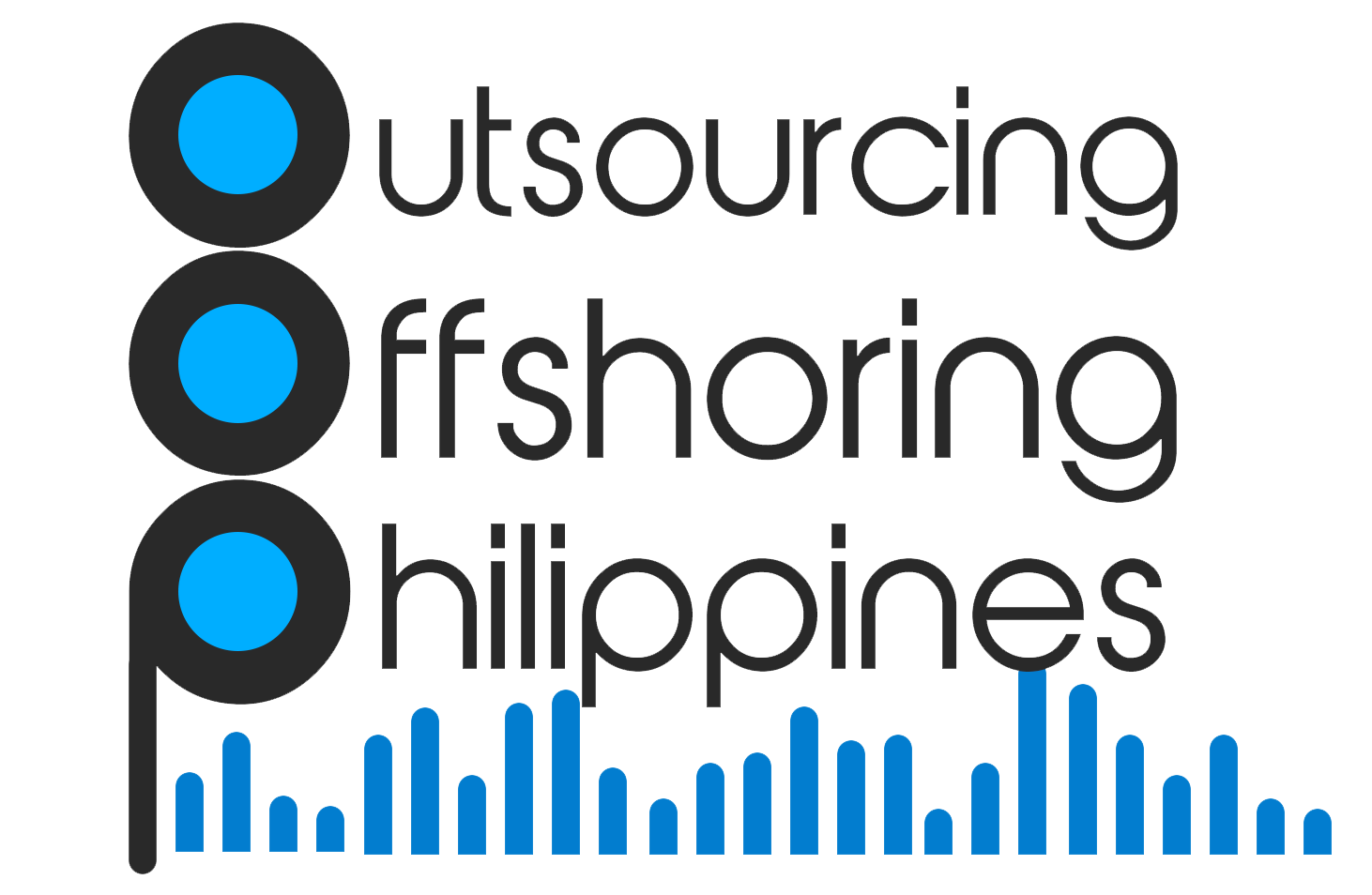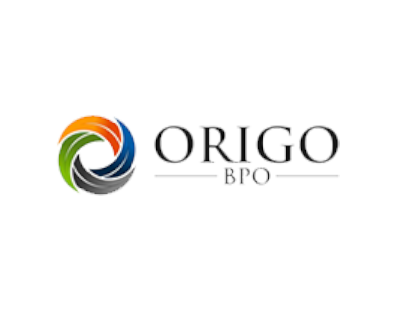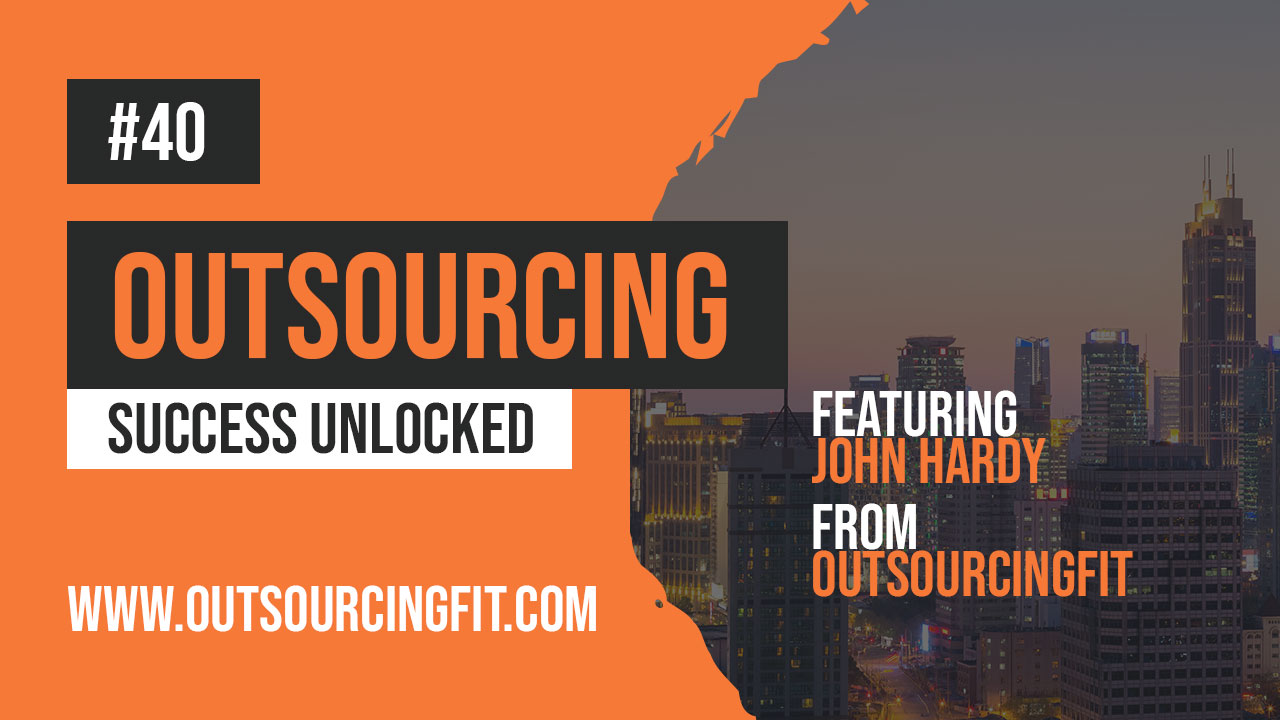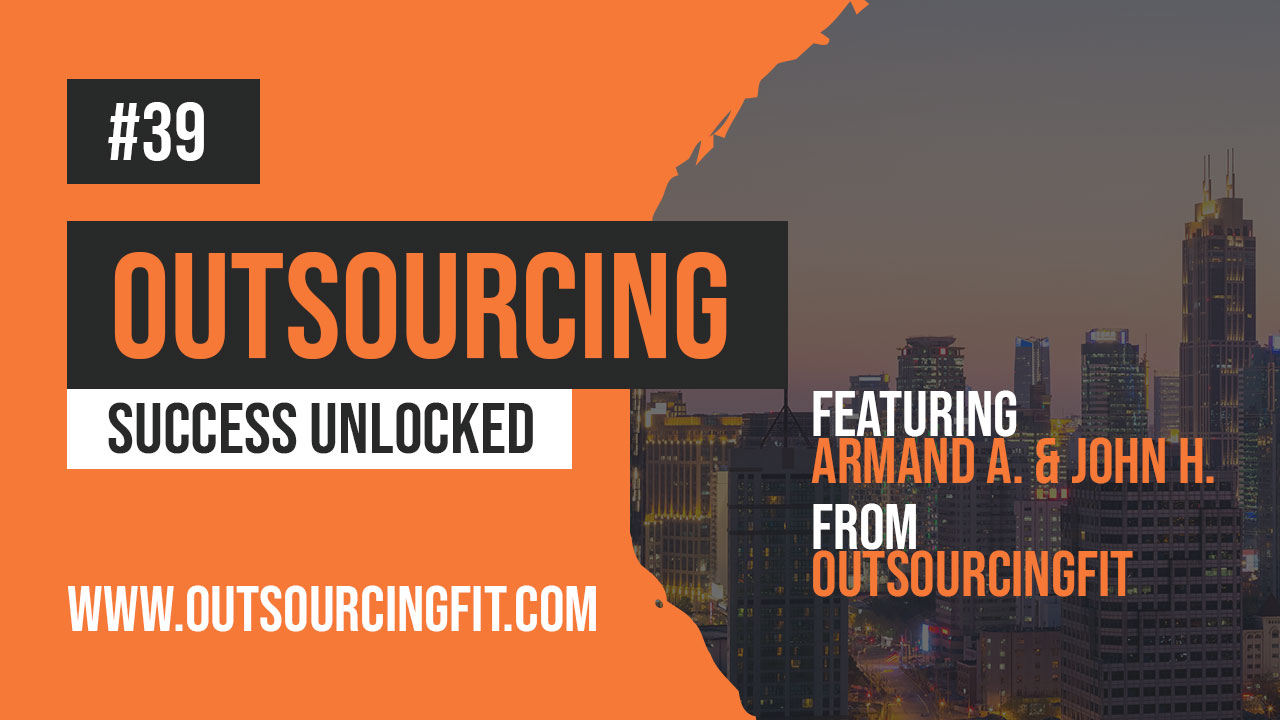 Guest: Scott McGrath
Guest: Scott McGrath
Presenter: Henry Acosta
Guest Bio: Scott McGrath, a founding member of OrigoBPO, has a strong leadership background in business development. Scott’s entrepreneurial problem-solving skills have guided Origo to emerge as a leader in helping Australian businesses grow through offshoring a strong local workforce in the Philippines. Scott is skilled in listening to the needs of every client. He believes that having an open and honest communication between teams will deliver good and productive business results. During his free time, Scott enjoys watching AFL, gardening and spending time at home with his family in Port Phillip Bay, Melbourne.
Segment overview: Scott McGrath, one of the co-founders of OrigoBPO, joins us in this segment to talk about OrigoBPO. Origo is a Latin word, which translates to “original.” Origo is an outsourcing company that deeply analyses your business needs and make strategic matches with their Philippine team members to help your business achieve your desired goals. Listen to this interview as Scott talks more about the company, its services, and why the Philippines is an ideal location for offshoring.
Address:
Melbourne – Office Suite 491/585 Little Collins St, Melbourne VIC 3000
Philippines – Pavilion 7, Berthaphil Clark Centre, Clarkfield, Pampanga, Philippines
Contact Number: (INTL) +61390888391
Website: www.origobpo.com.au
To know more about OrigoBPO, listen to the podcast below:
The interview will start at the 1:55 mark of the podcast
Transcript
Henry Acosta: This is the Outsourcing and Offshoring Philippines podcast and I’m Henry Acosta the host for today. Our guest today is Scott McGrath, one of the founding members and currently the Director of Sales of OrigoBPO. He is also known as an offshoring expert so just so you guys to know, you get really trust him with regard to our topic today. With all that said, welcome to the show Scott and thank you so much for your time.
Scott McGrath: Excellent Henry, thank you very much for having me.
Henry: I just gave a brief intro about we still don’t know much about you. So can you tell us a little bit more about yourself?
Scott: Sure mate. Look, I have a young family based in Melbourne, in Australia. That takes up a lot of my time at the moment with one little man that’s almost two and a beautiful wife. We really love this part of the world and obviously love the Philippines as well which is well have a business over there. I hope that’s a good enough overview of me, that’s pretty much takes much of my time at the moment between work and family.
Henry: You are one of the co-founders of OrigoBPO, right?
Scott: Yeah, absolutely. Well it’s funny, a co-founder is spun around a lot. There was part of few of us involved in this, there was a group of us. Rohan and I are that ones that sort of led this mission and sort of brought it all together. But there’s a few more including some of the wives that sit by us that made this possible. Lot of travel, lot of work, a lot of late nights so yeah I guess you could say I’m one of the co’s.
Henry: I just wanted to ask, where did the name Origo come from?
Scott: That’s a think of a name. It’s the hardest thing I think with starting a new business that I’ve started a few, ‘What do we name this thing?’ So Origo came, I was googling and looking up dictionaries. I believe and someone may prove me wrong, but I do believe that Origo is Latin for ‘original.’ So we tried to be a little more original in what we’re doing.
Henry: I did not expect that. I actually really like your name so it got my curiosity.
Scott: There you go man. Well it’s pronounced in so many different ways. Somebody would call it Origi-o or Origo, I’ve heard it pronounced about 20 different ways. But it’s Origo and yeah that’s how we got it.
Henry: Can you tell us about OrigoBPO and what do you guys for your clients?
Scott: Absolutely. Look, I guess we started because we tried to offshore and outsource ourselves and we didn’t have that great of experience. It wasn’t the experience that we were looking for or perhaps the model we were looking for. So we offer a fully managed seat leasing BPO and I guess try to talk about what our point of differences in cutting right down to the bare bones is that we help clients construct policies and procedures, SOPs, training. We really hold their hand so they can offshore successfully. We have a belief that, sure everyone has got seats and computers and facilities, but it’s about how you construct the policies and the procedures to allow the Filipinos to follow them correctly and allow that communication between the clients offshore or onshore and the team in the Philippines. And that’s really what we do, is help those clients across the U.S., Australia, New Zealand, really build teams.
Henry: Well can you give us any testimonials for what it’s been like for your clients working with OrigoBPO?
Scott: Yeah, for sure. Look I think in the beginning, we were a new business and we were kind of shy to really direct our client on what to do and some of the original ones sort of stagnated or they put on couple of people, couple of team members and really didn’t sort of build. But I guess moving forward, what we do now is we really set a path that are clear paths, 3,6,12 months plans to help the clients build those teams that really benefit their businesses. And I guess, I don’t know about a testimony but what we’ve done for a couple of financial services type business is really get in there and understand their processes. And align the team members coming on in whatever function as part of a greater plan rather than waiting for the client to say, “I’m ready to put on another person because of this particular workload.” We’d look for milestones now and that’s something we do with our clients that has worked really successfully. Even across our medical clients, really making the plan so that everyone both in-country and in the Philippines understands the roll out, I guess, in how the team can expand or detract. But it’s communication, and look it’s not perfect, nothing ever goes to plan that’s for sure but at least there’s a guide there and people are sort of, there’s a plan that we can all work to. And as I said, it doesn’t always work, but at least we can get things back on track.
Henry: Since you mentioned about clients and them starting their own outsourcing journey and working you guys. What do they have to do to better prepare themselves from their transition from going onshore to offshore?
Scott: The biggest thing that I talk about the policy and procedures and that’s all fine. A lot of clients don’t even know what policies or procedures to put together to offshore. I think one of the biggest things is the ‘Why.’ Explaining to the team in-country so if it’s an Australian business, ‘Explain to the guys and girls here why we’re doing this and what function are going to be offshored. A lot of fear is created by, “Oh we’re going to lose our jobs, the business is starting to offshore.” When in reality 99% of the time, it’s not the case. It’s simply that this support staff or their support teams to the great guys and girls here in-country. So I would say that businesses need to prepare to ‘why.’ Fully understand what they’re trying to do and why they want to scale or why they want to offshore. If it’s simply to save a few bucks, I sort of stir clear for those type of clients because I think they’d better off with the short term solution.
Henry: I just wanted to ask, how do you guys usually get your clients?
Scott: Hustle, hustle, hustle. Look, it’s from our own networks but we have from introduction. A lot of it comes from referrals, they’re very powerful in this game. Because it’s a scary thing for businesses that haven’t embarked on it before. And I think nowadays depending on the industry but a lot of people will know a bad story or someone that’s offshored and what went wrong with it so referrals are big part of it. Right now, we’re building a marketing team, at the same time to generate content that’s not necessarily sales-y, but what I like to do is to educate the clients. Let’s start educating people on the do’s and dont’s and start educating on them on I guess putting away the fear. A lot of the fear is created by people that have done it in our opinion wrong or they haven’t followed the rules or they haven’t invested entirely. That’s what I want to do, did I answer that one?
Henry: You mentioned a while ago that you had a bad experience with outsourcing and offshoring at first. So did you try doing it on the other countries as well?
Scott: No, we didn’t. We were in the Philippines, and wasn’t so much that we had bad providers. I think it was expectation. The providers didn’t set us with the right expectations and we probably had a bigger expectation on what service would be delivered. So I don’t think anyone did anything wrong, it’s just that it wasn’t the right fit for us. We did try it. No, it was just in the Philippines. People often ask me, “ Have you look in India? Have you look at other countries?”
Henry: I was about to ask that.
Scott: I love the Philippines. I’m not particularly good with spice so India has never really attracted me that much. Although there is some crazy spicy things in the Philippines but we fell in love with the people. The people, the culture in the Philippines are amazing. I can’t rave about that better enough but it’s not until you sort of go and experience it, you experience how close the Filipino culture is. How family orientated it is. That’s I guess what made me fall in love with it. I have got Filipino friends from university and so I know that culture but to be immersed with our team now is truly amazing. I’ve sort of worked as a BD or in sales in the corporate world for too years now and now I lost count of the amount of meals that I would have had on a desk by myself, that was just the way we work. It’s just so foreign, it’s so foreign for my team like to eat by themselves. So from that respect, yeah I wouldn’t choose anywhere else. I just love the Philippines. It’s a great, great country.
Henry: Have you ever had a client’s visit in the Philippines?
Scott: Yes, absolutely. It’s one of the things we encourage. Maybe not in the short term, there’s no need to jump on the plane immediately, I don’t recommend it. If they want to have a look, ‘Absolutely. Let’s come and let’s have tour and have look because there’s so many great things to see.’ Absolutely, we love when clients come and more so the team loves it when their clients come to visit. There’s a difference, our clients get really attached, they really get close to their team just as if they were a team in-country, but there’s a difference between seeing that face that you know on Skype videos or what not and actually sort of being with them face-to-face. So absolutely, we encourage them and we love it. You know Henry, it gives me a good excuse to come to the Philippines. “Oh my client is going, I must go with them.” And we’re going to get some street pork and street chicken which I love.
Henry: I was just curious, where are your offices here in the Philippines?
Scott: In Clark. So we’re based in the Clark Freeport Zone.
Henry: I see. For your clients, what are the usual challenges that they usually face when they first start out in the Philippines? And what’s your biggest advice to them?
Scott: I think the biggest challenge I guess is devoting the time. As I say to a lot of potential clients of my own and prospects, the Filipinos are these magical beings from another country. They are real people and you need to converse and communicate with them. That’s probably one of the biggest challenges is clients come on and they’re like, “Ah wow this actually takes them work.” Because it is easy but it does takes work. You need to devote some time to bringing your team up to speed and that’s probably one of the biggest challenges. Some clients just absolutely take to it, I’m thinking of one now and he’s amazing this guy. His whole team is so focused on bringing their Filipino team, bringing them in close and making them really, really part of the team, it’s a U.S. client and they’ve got about 15 people I believe at the moment. And then you got others that just barely make the time, they’re rushing. That where we come into it, that’s our value to sort of assist them through that time. I guess the other thing is the honeymoon period, that’s what I called the honeymoon period. So we get all excited, we’re offshoring, we love our team members that we’ve been onboarded. But three months goes by, I called it three month honeymoon, and then daily business life gets in the way, things get busy, hassles, just the standard running a business thing and sometimes the communication can drop off, and that again is one thing that we really watch with our client success team to make sure that those communication channels remain open and it really is a two-way street.
Henry: What would be the biggest lesson that you learned when you first started out in the Philippines that our audience can take away from this interview?
Scott: Do not eat ‘balut,’ don’t google that. That’s a very big lesson that’s probably got nothing to do with offshoring or outsourcing, but do not eat ‘balut.’ Don’t fly in to Manila, good lesson, we’re open at Clark. Fly into Hong Kong, have a nice expensive $18 Guinness get on the plane early in the morning and fly directly into Clark, it’s much easier. Look, I think time. Don’t underestimate time and how long it takes to get things done. And the complexities of the Philippines from a compliance and a law point of view. It’s why you use the BPO and use it well. A BPO that is well regarded and I think you won’t run into any trouble. That’s probably something, the only thing that comes to mind.
Henry: For those interested in talking to you Scott and getting in touch with OrigoBPO, what’s the best that they can do that?
Scott: Yes, jump on the website. Shoot me through our contact us form. I’m on LinkedIn, shoot me a message through LinkedIn if you could find me which you should be able to. I’m more than happy to have a chat. One of the things that I do with clients is really, some of the conversations that I was having early this year and last year are only now looking like becoming clients. It takes some time and don’t be afraid to reach out and start asking questions and start talking to a whole bunch of different people in the industry because there’s some fantastic operators in this some not so fantastic operators. Just get in touch, have a conversation, open a conversation up. We will actually explore before we go anywhere, we’ll actually explore what you’re looking for, what sort of processes you have, what sort of training materials you have. And we can even help you sort of start to shape those long before you’re engaged, long before we engage you, I want to make sure that you working on those types of documents so you are ready. And I guess what we will give you is it’ll give you by ‘hit by the bus.’ It will give you by hit by the bus sort of ability of your business that you’ll have some of this documented that is scalable and repeatable.
Henry: That sounds great. Origo sounds like a really great company to be working with actually.
Scott: It is amazing. You have just have to talk to some of our team members. They’re the ones that would sell heck a lot better than I could. We’re trying to create a place that’s great, to great to work, we have all awards under the sun, we have the writing fan award at the end of the month with our clients sort of vote on from which we choose. It is just one big family but you know what, a hard working family. Only the best comes to Origo, we behavioral test for that, we screen for that. So we do have a very tight group even as we grow.
Henry: That’s all our questions for today and thank you so much for coming on this show Scott.
Scott: Excellent Henry. Thank you so much for your time.
Henry: Thank you for coming on the show and maybe you can get back to us again after a few months
Scott: Absolutely, love to Henry. Thanks again.
Henry: That was Scott McGrath, not only is he an offshoring expert but he is also one of the founding members and the Director of Sales at OrigoBPO. We just finished talking about the OrigoBPO and what it’s like outsourcing with them and what you can expect out of the Philippines. You can learn more about them at www.origobpo.com.au. The podcast you are listening to right now is available on YouTube, SoundCloud and iTunes. You can also find on all our updates at www.offshoring.com.ph. So make sure to follow, like and subscribe to our social media pages which you can find on our website. I’m Henry Acosta and this is the Outsourcing and Offshoring Philippines podcast.



